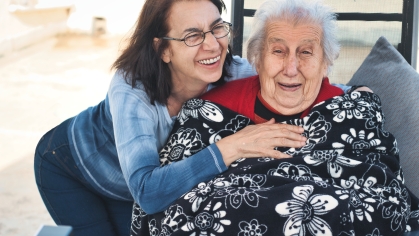Research Infrastructure
The Aging and Health Services Research branch is led by Dr. Ayse Akincigil, a social work professor and health services economist. The branch operates within an infrastructure that supports research using data from the Center for Medicare and Medicaid Services (CMS) in the form of research identifiable files (RIF) as well as limited datasets (LDS) that combine survey with administrative data. The infrastructure is certified by the CMS Data Privacy Safety Program. The certification demonstrates RUSSW-IT’s compliance and preparedness with CMS security and privacy requirements, enabling the team to work with datasets that include HIPAA identifiers. The RUSSW is one of the three centers at Rutgers with the certification from the CMS.
In addition to administrative datasets from Medicare and Medicaid, Hub for Aging Collaboration researchers use multiple publicly available and limited datasets in their research. These include the Medicare Current Beneficiary Survey (MCBS), the Health and Retirement Study (HRS), the National Health and Aging Trends Study (NHATS), the National Vital Statistics Mortality data (NVSS), the Behavioral Risk Factor Surveillance System (BRFSS) survey, Adolescent to Adult Health (Add Health), LTC Focus data from Brown School of Public Health, Social Vulnerability Index (SVI) data, and Dartmouth Atlas data.
Students and other research scholars interested in collaborating with the Hub on research projects, please get in touch with Dr. Ayse Akincigil at aakinci@rutgers.edu









